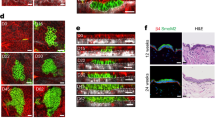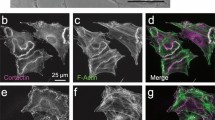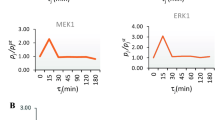Abstract
Fibroblast growth factors (FGF)-1 and -2 are found in most embryonic and adult normal and tumor tissues, where they are immobilized in the extracellular matrix (EM). Mobilization of these FGFs is part of a tightly controlled process resulting in the activation of high-affinity receptors. Recently, we have shown that a novel human FGF-binding protein (FGF-BP) mediates the release of immobilized FGF-2 from the EM. Here we isolated genomic and cDNA clones of the mouse FGF-BP homologue and studied its expression during embryonic development and skin carcinogenesis. The murine gene contains two exons that generate a 1.2 kb mRNA and predicts an 18 kDa secreted protein that is 63% identical to its human homologue. FGF-BP mRNA expression during embryogenesis is restricted to skin, intestine and lung. In the developing skin, FGF-BP expression starts at embryonic day 9, reaches peak levels perinatally and is downregulated during postnatal development. Develepment regulation in the intestine is similar, but in lungs and ovaries high expression was also observed in the adult. FGF-BP mRNA expression in the adult skin is dramatically increased during early stages of carcinogen-induced transformation in vivo and by ras-activation in vitro. Finally, mouse FGF-BP binds to FGF-2 and can function as a modulator of FGF in FGF-responsive cells. Our results suggest a potential function of FGF-BP during development and tumorigenesis.
This is a preview of subscription content, access via your institution
Access options
Subscribe to this journal
Receive 50 print issues and online access
$259.00 per year
only $5.18 per issue
Buy this article
- Purchase on Springer Link
- Instant access to full article PDF
Prices may be subject to local taxes which are calculated during checkout
Similar content being viewed by others
Author information
Authors and Affiliations
Rights and permissions
About this article
Cite this article
Kurtz, A., Wang, HL., Darwiche, N. et al. Expression of a binding protein for FGF is associated with epithelial development and skin carcinogenesis. Oncogene 14, 2671–2681 (1997). https://doi.org/10.1038/sj.onc.1201117
Received:
Revised:
Accepted:
Issue Date:
DOI: https://doi.org/10.1038/sj.onc.1201117
Keywords
This article is cited by
-
Poly-L-arginine promotes asthma angiogenesis through induction of FGFBP1 in airway epithelial cells via activation of the mTORC1-STAT3 pathway
Cell Death & Disease (2021)
-
FIBP knockdown attenuates growth and enhances chemotherapy in colorectal cancer via regulating GSK3β-related pathways
Oncogenesis (2018)
-
Anti-tumor effects of fibroblast growth factor-binding protein (FGF-BP) knockdown in colon carcinoma
Molecular Cancer (2011)
-
Fgfbp1 Is Essential for the Cellular Survival during Zebrafish Embryogenesis
Molecules and Cells (2010)
-
Krüppel-like factor 5 promotes breast cell proliferation partially through upregulating the transcription of fibroblast growth factor binding protein 1
Oncogene (2009)



